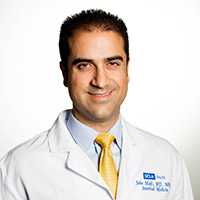10 Apr Hospital Based Primary Care Practices Provide More Low Value Services
MedicalResearch.com Interview with:
John N. Mafi, MD, MPH
Assistant Professor of Medicine
Division of General Internal Medicine and Health Services Research
UCLA David Geffen School of Medicine
Los Angeles, CA 90024
Affiliated Natural Scientist in Health Policy
RAND Corporation
1776 Main St, Santa Monica, CA 90401
MedicalResearch.com: What is the background for this study? What are the main findings?
Response: Between 10-30% of healthcare costs are due to low value care, or patient care that provides little to no benefit to patients, and can sometimes cause harm (e.g., radiation exposure from diagnostic imaging tests). In this study, we found that hospital-based primary care practice provide more low value care than community-based primary care practices across the United States. Understanding where and why low value care occurs is going to be essential if we want to get serious about eliminating it.
MedicalResearch.com: What should readers take away from your report?
Response: These finds highlight that hospital-based primary care practices deliver more low value care when compared with community-based primary care practices. We also found that having a relationship with your primary care physician seemed to “protect” you against receiving low value care in hospital-based practices. Hospitals tended to employ primary care physicians who see patients they don’t know and this seemed to be one of the major drivers of low value care at hospital-based practices. Overall, these findings raise concerns about the delivery of low value care at hospital-associated primary care practices.
MedicalResearch.com: What recommendations do you have for future research as a result of this study?
Response: I think it is important for hospitals and hospital leaders to understand the increased rates of low value care occurring at hospital-based primary care practices. I think this question of having a continuous relationship with your primary care physician is also a particularly meaningful issue to consider. There have been many studies previously finding that when patients have continuous relationships with their primary care physicians, it improves the quality of care, and reduces costs and unnecessary care. I believe this myself as a practicing primary care physician. But I think it is still an open question though as to whether taking steps to really maximize these continuous relationships really does indeed reduce low value care. This is certainly an area that I think needs more research and many of the forthcoming national analyses looking at patient-centered medical homes (innovative primary care practice models that maximize whole-person, continuous care and are accountable for their population’s health and costs of care) will hopefully help to illuminate this question.
MedicalResearch.com: Is there anything else you would like to add?
Response: Of note, 3 of the 4 study’s co-authors are part-time academic primary care physicians (JM, CW, BL) who practice at hospital-based primary care practices in both Los Angeles and Boston. We have no financial disclosures.
MedicalResearch.com: Thank you for your contribution to the MedicalResearch.com community.
Citation:
Note: Content is Not intended as medical advice. Please consult your health care provider regarding your specific medical condition and questions.
More Medical Research Interviews on MedicalResearch.com
[wysija_form id=”5″]
Last Updated on April 10, 2017 by Marie Benz MD FAAD

